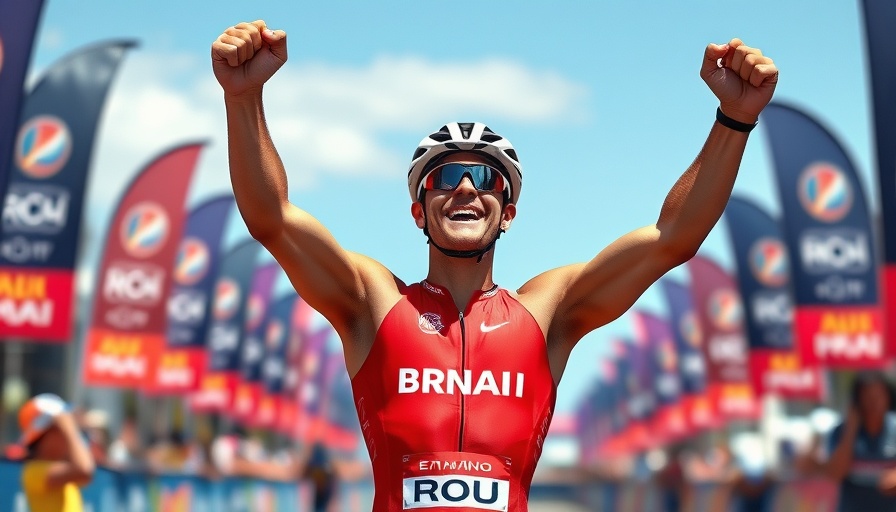
How Kona Triathlon Elevates Athletic Standards
The Kona Ironman Triathlon is more than an athletic competition; it's a benchmark for endurance sports. According to Daniela Ryf, a five-time Ironman world champion, simply finishing the Kona distance—comprising a 2.4-mile swim, a 112-mile bike, followed by a marathon—requires tremendous physical training and mental fortitude. The unique challenges presented by Kona’s climate, wind, and terrain make this event not just a test of fitness but also of adaptability and resilience.
In 'What Does It Take to Win Kona? | Daniela Ryf Reveals Her Secrets', Daniela Ryf provides in-depth insights into the rigorous preparations needed for this legendary triathlon.
The Impact of Environmental Conditioning
Unlike standard triathlons, Kona demands specific adaptations to heat and humidity, as Ryf emphasizes the need for rigorous preparation in similar environmental conditions. Training in high-heat settings, such as Hawaii, helps athletes acclimate to the daunting circumstances they will endure on race day. Athletes often engage in physical training that includes practicing pacing and nutrition under heat stress, ensuring they fully understand how to fuel their bodies throughout the race without succumbing to the exhausting conditions.
Navigating the Swim: A Tactical Approach
The strategic components of the swim segment can't be overlooked. In Kona, it’s crucial to maintain a proper pace while also positioning oneself effectively in the water. With potential water temperatures hitting 28 degrees Celsius, overheating can derail an athlete’s overall performance. The tactical focus during this part of the triathlon sets the stage for success on the bike and run courses.
Mastering the Bike Course's Challenges
Once out of the water, the onus shifts to managing the challenging bike course. Ryf details the importance of establishing a solid game plan early on, particularly handling the transitions from the first section onto the Queen Kahumanu Highway, where pacing and proper nutrition are vital. The contrasting wind dynamics of headwinds and tailwinds present unique challenges, requiring a blend of mental focus and tactical execution for optimal performance.
Building Mental Resilience on the Run
Endurance athletes must also prepare mentally for the marathon segment. The excitement of crowd support is juxtaposed against the quiet challenges of maintaining focus and pacing as fatigue sets in. Ryf encourages athletes to remember their motivations—often a personal connection to their journey—that will carry them through the long, arduous path toward the finish line.
A Quick Snapshot of Race Day Wisdom
Ultimately, a successful race day hinges on executing a well-planned strategy while remaining adaptable to the unexpected conditions of Kona. Athletes are encouraged to embrace the experience and stay focused amidst fatigue and emotional highs and lows. Ryf's insights remind us that participation in such a prestigious event requires not just physical prowess but also an unwavering commitment to personal growth and resilience.
Kona's triathlon is not just a race; it's a life lesson in endurance, adaptability, and the sheer joy of striving toward one’s goals. Regardless of your experience level, the principles of preparation, mental fortitude, and community support resonate universally.
For every aspiring triathlete, Daniel Ryf's experiences can serve as a source of motivation and inspiration. Are you ready to take on your next challenge?
 Add Row
Add Row  Add
Add 


Write A Comment